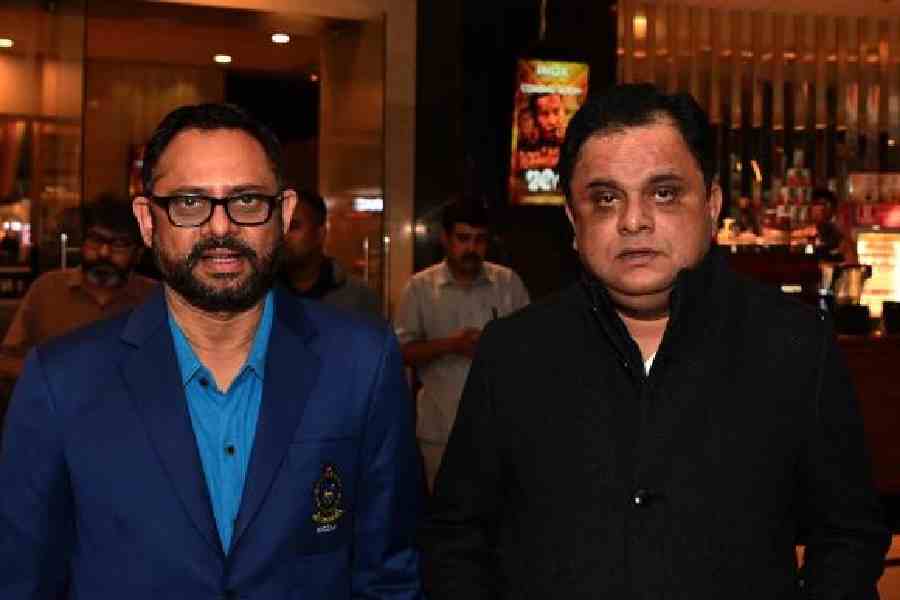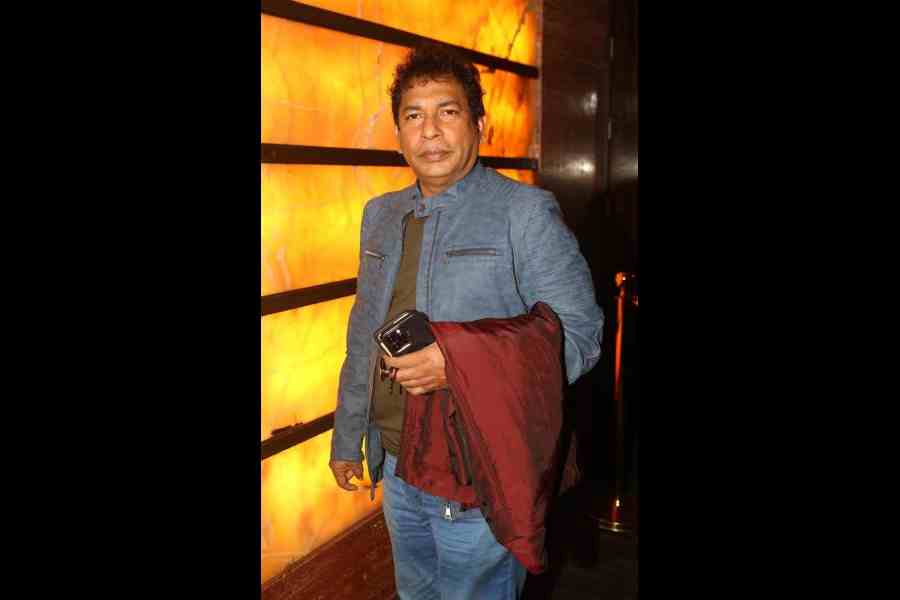Bratya Basu’s latest film Hubba is based on the story of Shyamal Das alias Hubba, a notorious criminal who operated in the industrial belts of Howrah and Hooghly since the ‘90s. Bangladeshi actor Mosharraf Karim plays Hubba. The duo previously had worked together in Basu’s directorial titled Dictionary, which had won a lot of accolades. A t2 chat with Mosharraf Karim...
When did you first hear about this film?
When I was shooting for Dictionary with Bratyada, he mentioned his plan to do a film like Hubba. He gave me a few hints about the plot and the story, and I had already made up my mind to be a part of this film. I was eagerly waiting until the time came and kept thinking to myself, “When will I get to play this role?”
What were your thoughts when Bratyada approached you for the role?
When I heard about the film, I was quite intrigued by the character. For an actor to be able to enjoy his role and what he’s doing there must be a wide spectrum of to-dos to touch upon. Unless the flavour is there, it’s no fun. I found in Hubba something which irked me. It’s a rare occurrence that you get to play a character like Hubba in a film. It was the dynamism of the character that drove me to play the role of the gangster. I have done theatre, television programmes as well as films, but the experience of shooting Hubba, owing mainly to the characters and the plot, stands out altogether.
Why did you say yes?
The reason I said yes was because the script narration provoked me to think intently. After hearing about the film, it was my intent and wish to play the role of this notorious Howrah-Hooghly-based gangster Shyamal Das.
Would you necessarily call your character negative?
Yes, I will consider Hubba’s character to be negative. He’s an antagonist. The entire character and the role of the gangster is unique and out-of-the-box and simply a treat for an actor! He has so many shades... the variety is something that I enjoyed the most about the role. I liked the story in totality and that’s the main reason why I signed up for this project in the first place.

Producer Firdausul Hasan and director Bratya Basu
How did you prepare for it?
You know it happens that you read a book or listen to a story and you can almost visualise the character and their characteristics, how the person walks, talks, eats or sleeps. It was the same with me and this character. When I heard the story, I imagined Hubba and sketched out the character in my head. I retained what I sketched out and after a point the character opened up in me and I settled into it. I didn’t prepare for a physical transformation nor was I ardently zealous about a particular factor while preparing for my character. I went with the flow of the character’s analysis and development. I let the imagination settle into my head. This is a regular process and then comes a point where the character starts talking to me as well. That’s when I know I’m fully ready to play that role on record.
Will Hubba connect with the masses?
Yes, I think people will connect to it and it’s not because such instances have happened in the past, but the plot which unfurls in Hubba coincides with the common man’s reality. And such notorious characters are found in both our Banglas. People have seen such characters and are familiar with the daily occurrences and they’d want to see more relatable content on screen. That’s what the audience connects to.
What were the challenges of playing this character?
The entirety was a challenge. Hubba has too many shades for just one individual. The myriad shades of the character are difficult to grasp and portray on screen. So, gauging the pathway was one of the major challenges. However, playing the different shades and personalities in itself is super challenging so it depends on a person’s perspective to understand their difficulties and challenges. But there was this specific part in the movie, a scene of encounter with the police, where they’re questioning Hubba. When the police encounter and questions come flowing in, Hubba transformed into another character while playing one role. He put up a garb and started acting while already acting in the movie. Such a blur was really challenging.
How was your experience working with Bratyada?
I fell in love with his work since Dictionary. Hence our second project means a lot. I can’t simply say I liked the experience, but I think it goes deeper. I feel that the director-actor chemistry between us is great and that he understands me and appreciates my acting. And there are plenty of reasons for me to find him inspirational. From his expertise and many feats across different fields to my love for his direction, all have had a very positive impact on the experience.
Are you a fan of Bengali movies? Which are some of your faves?
I like watching Bengali movies. Dictionary, all of Ray’s (Satyajit Ray) works, Ritwik Ghatak’s works and among the contemporaries, I really like watching Kaushik Ganguly and Srijit’s (Mukherji) films.
What do you like about Calcutta?
I’ve visited Calcutta a lot of times. I love walking in the city, on the streets and the footpath, nibbling on street food.
What do you like eating in our city?
I love street food in Calcutta and the unexplored dens from age-old times like Hotel Tarun Niketan on Rashbehari Avenue. I like the chanachur you get in your city as well.











